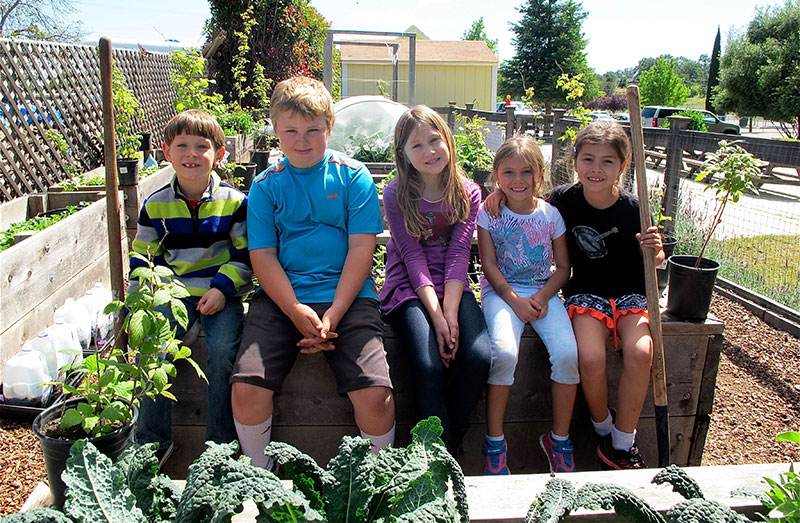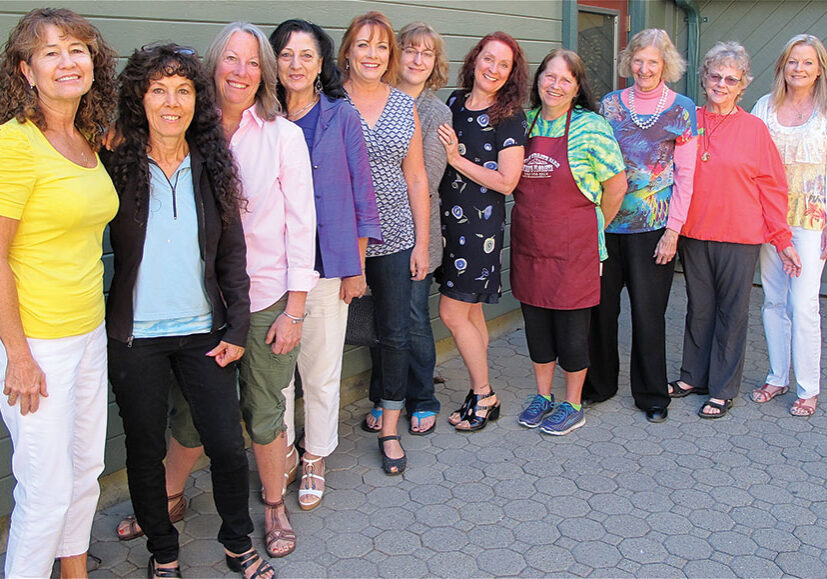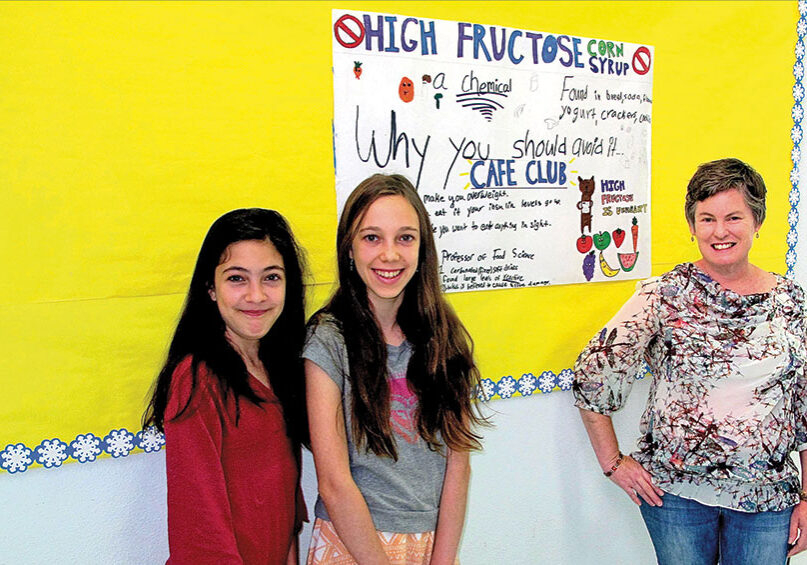In recent years, school garden programs have become a widespread movement to bring education outdoors and promote hands-on learning for children. Through community collaboration, gardens are blooming on elementary campuses in every North State county.
Dana Jordan is one of four volunteer coordinators at the Grant Elementary School garden in Redding, as well as the mother of two students at the school. Her love for working in her family’s garden inspired her to become involved.
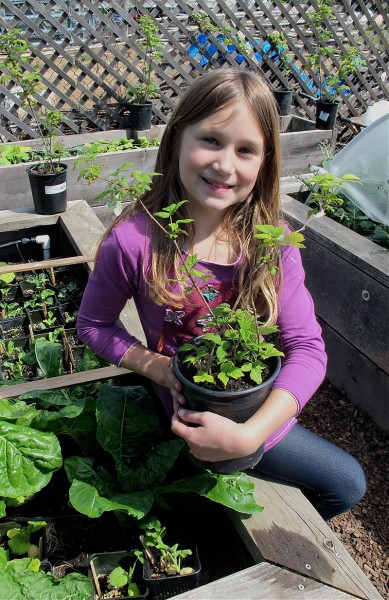 From preparing the garden beds to deciding which seeds to plant, Dana says the program tries to get all grades, pre-kindergarten through 8th grade, involved in some way over the course of the school year. “Kids get to see the full circle of the process of where food comes from,” she explains. “We’re educating them on composting and healthy food choices as well.”
From preparing the garden beds to deciding which seeds to plant, Dana says the program tries to get all grades, pre-kindergarten through 8th grade, involved in some way over the course of the school year. “Kids get to see the full circle of the process of where food comes from,” she explains. “We’re educating them on composting and healthy food choices as well.”
With 10 to 12 working beds, by growing food onsite the Grant program has been able to offset some costs of offering fresh food in the cafeteria, and an annual spring plant sale helps support the program and its future growth.
The Butte County Office of Education began a student farm at Mesa Vista School in Oroville last spring. Its special education teachers worked with other staff, along with members of several community programs, to rehabilitate an abandoned and overgrown garden plot on the school grounds.
Currently, six special education classrooms with roughly 70 students from age 5 to 13 use the garden. Sarah Daniel, school psychologist at Mesa Vista, says, “All of the teachers tie the garden project into their daily teaching in creative ways. Students really enjoy having science, math, reading and writing taught in context of the garden environment.”
“This meaningful work helps students gain a sense of competency and pride as they give back to their families and community,” explains Daniel. “For the adults, a vibrant school garden improves staff morale and school climate and encourages healthy eating habits.”
HearthStone School in Oroville also offers a school garden for its kindergarten through 12th grade students. Working with a local garden club, community partnerships and grant funding, the project includes vegetables, flowers and fruit trees. Students have sold seedlings at farmers markets and help pick, wash and prepare the garden’s harvest.
HearthStone Principal Susan Domenighini says that the garden facilitates lessons at all levels, and include topics such as water quality and environmental engineering. Students recently created delicious soups with their produce, using solar ovens, for a “Soup Serenade” event for families, featuring music and dinner.
In Tehama County, parents and supporters of the Antelope Elementary School in Red Bluff created a sizeable garden with the assistance of local businesses and contractors. JT Shoults began as a garden volunteer there when his granddaughter attended the school’s Safe Education & Recreation for Rural Families (SERRF) afterschool program. He was hired in December 2014 with the intent of establishing gardens at all 21 SERRF Afterschool Program sites throughout Tehama County.
According to SERRF Recreation Specialist Beth Birk, Shoults’ efforts, contacts and passion have not only been key to the county-wide SERRF program’s success, but are positive traits he shares with the children. Now a garden instructor for the program, Shoults has initially focused on eight garden sites and has plans to work with all the proposed SERRF sites in the future.
Birk says that to date nearly 600 kindergarten through 8th grade students from schools throughout Tehama County have been involved in the SERRF program, adding, “Children are gaining from the pride they experience in working together and growing produce. Cooperation, teamwork, sharing responsibilities, and cleaning up after while having a great time out in the garden are some of the many lessons they learn.”
Birk notes that the Antelope SERRF site has been designated a “Healthy Behavior Initiative Learning Center” because of their work in promoting nutrition and physical activities. During inclement weather, lessons are brought into the classrooms for students to continue their education indoors. Birk adds that the children have taste testings and that some of the harvest is used in school lunches. Extra produce is distributed to local food banks. Mount Shasta Elementary also has a school garden, where students participate in a “Seeds to Soup” program, growing and preparing fresh food.
Educators and parents involved with school garden programs agree that lessons learned go beyond the garden to include an increased appreciation and understanding of nature along with improved attitudes and knowledge about healthy eating and lifestyles.
A common thread in all school gardens is that community support is vital. To find out more about becoming involved in a garden near you, contact your local school.
Comment Policy: All viewpoints are welcome, but comments should remain relevant. Personal attacks, profanity, and aggressive behavior are not allowed. No spam, advertising, or promoting of products/services. Please, only use your real name and limit the amount of links submitted in your comment.
You Might Also Like...
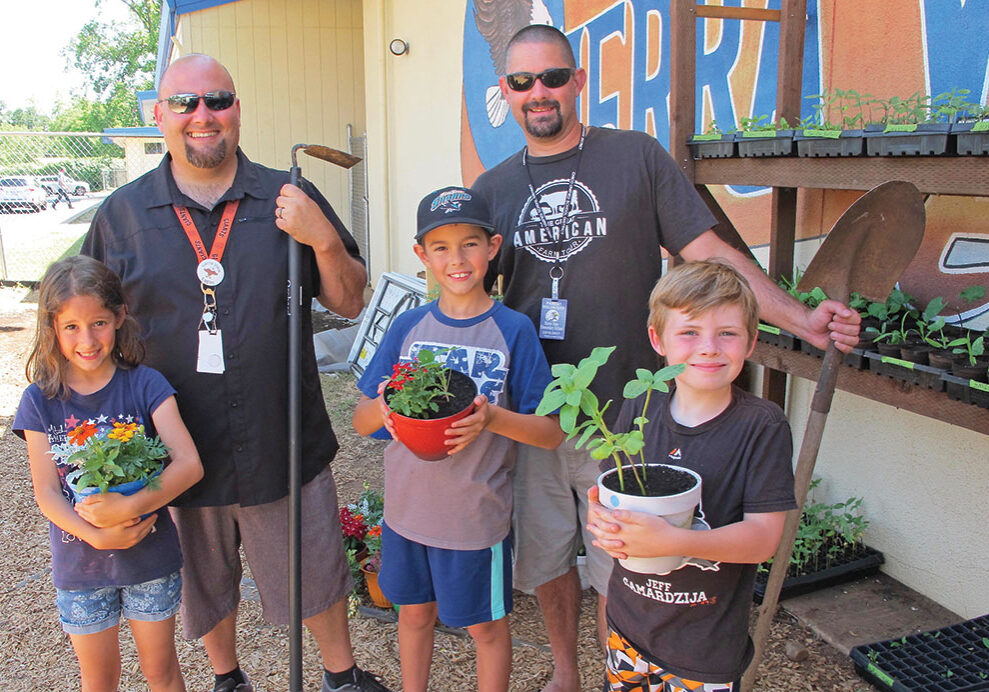
The Origins Of Our Food
Introducing Elementary School Kids To The Origins Of Our Food Gardening Dads Justin Ingersoll and Ryan Fabian have cast a strange spell at Sierra View Elementary School in Chico, CA […]
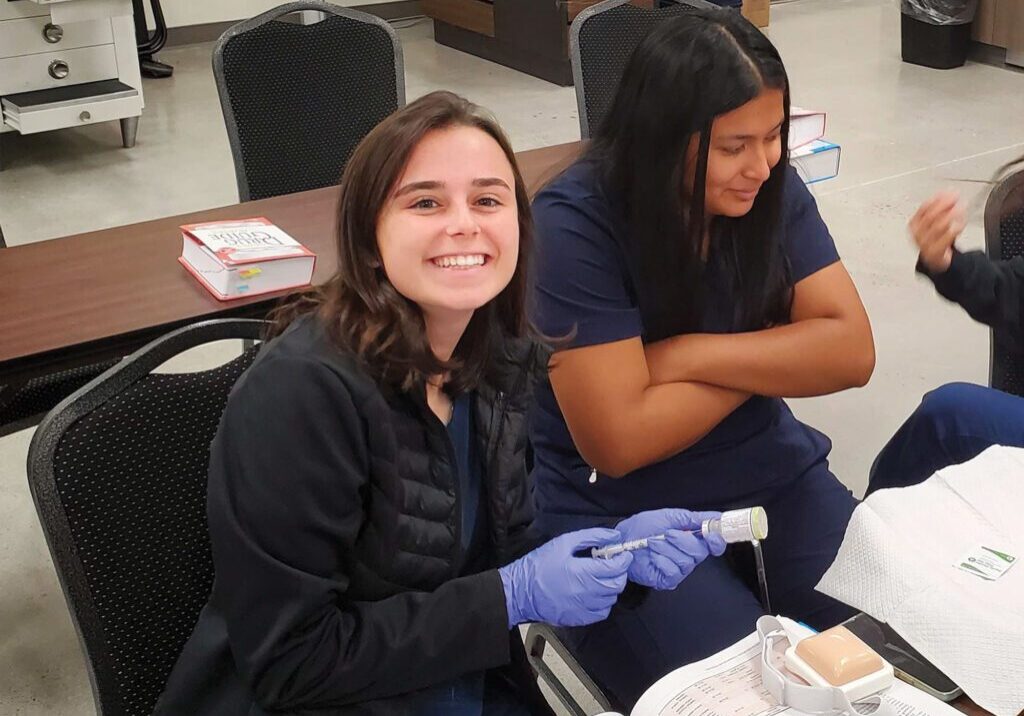
A Gateway to Health Care: Glenn County Medical Assistant Program Is a Game-Changer
Health care careers are more than jobs—they’re opportunities to make a difference. As health care continues to be a cornerstone of our communities, the need for skilled professionals is more […]

5 Things To Do With Kids In Arcata
5 Things To Do With Kids In Arcata Summertime on the northern California coast! Beachcombing, kickin’ it at the dunes, dipping toes in the ocean with all the whales, octopi, […]
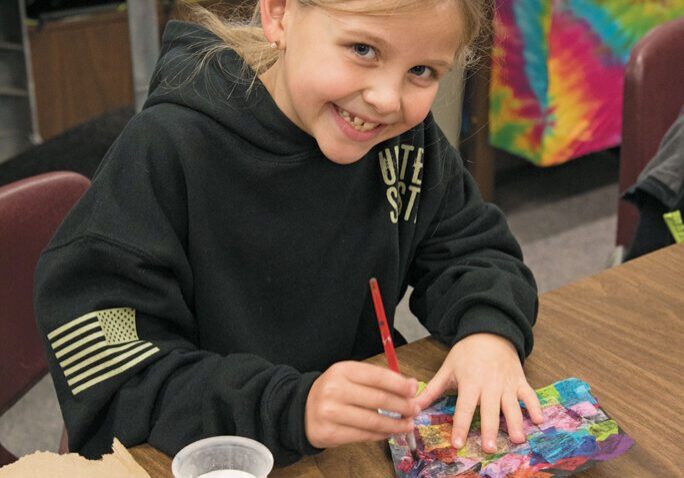
The Importance of the Arts: Experts Share their Perspectives
Children are born artists. Even young children know how to create – thrilled by the magical sound made by tapping on piano keys, by the texture of fingerpaints, by the […]



